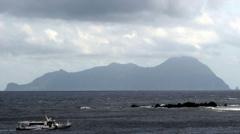Ibiza's popularity as a party destination has strained its healthcare system, with ambulance crews reporting a surge in drug-related emergencies, primarily from foreign visitors. This situation reflects broader tensions in Europe regarding the impact of tourism on local resources.
Ibiza's Ambulance Services Overwhelmed by Rising Drug-Related Incidents

Ibiza's Ambulance Services Overwhelmed by Rising Drug-Related Incidents
The influx of tourists has led to an alarming increase in drug-related emergency calls on Ibiza, raising concerns about the sustainability of healthcare services on the island.
Article:
The enchanting allure of Ibiza, a premier party destination in Spain, is now becoming a double-edged sword for its healthcare system. With an influx of 3.3 million visitors last year, the island's ambulance services are buckling under the weight of regular drug-related emergencies stemming from nightlife hot spots.
Pablo Roig, a seasoned ambulance technician, navigates through heavy traffic and packed beaches, bringing aid to individuals affected by substance abuse in nightclubs. "During the peak summer months, we hardly get a moment to breathe," Roig lamented, illustrating the profound strain faced by emergency services. According to the local health technicians union, more than 25% of all emergency calls during peak season are linked to nightlife incidents, predominantly involving tourists.
"The same night, we might respond to the same club multiple times," noted José Manuel Maroto from the technicians' union. This alarming trend highlights a growing crisis on an island that provides entertainment to countless visitors, while its local population of 160,000 contend with increasingly precarious health and safety conditions.
As Ibiza grapples with this mounting issue, parallels emerge in other tourist-heavy regions in Europe, including Italy and Portugal, where protests against overtourism have garnered attention. Residents are expressing concerns over increased public resource strain and an escalating cost of living due to the burden of managing large crowds.
The medical emergency services on Ibiza are increasingly calling for immediate support and action to address these challenges, underscoring a critical juncture for destinations globally, as they balance the benefits of tourism with the well-being of their residents.
The enchanting allure of Ibiza, a premier party destination in Spain, is now becoming a double-edged sword for its healthcare system. With an influx of 3.3 million visitors last year, the island's ambulance services are buckling under the weight of regular drug-related emergencies stemming from nightlife hot spots.
Pablo Roig, a seasoned ambulance technician, navigates through heavy traffic and packed beaches, bringing aid to individuals affected by substance abuse in nightclubs. "During the peak summer months, we hardly get a moment to breathe," Roig lamented, illustrating the profound strain faced by emergency services. According to the local health technicians union, more than 25% of all emergency calls during peak season are linked to nightlife incidents, predominantly involving tourists.
"The same night, we might respond to the same club multiple times," noted José Manuel Maroto from the technicians' union. This alarming trend highlights a growing crisis on an island that provides entertainment to countless visitors, while its local population of 160,000 contend with increasingly precarious health and safety conditions.
As Ibiza grapples with this mounting issue, parallels emerge in other tourist-heavy regions in Europe, including Italy and Portugal, where protests against overtourism have garnered attention. Residents are expressing concerns over increased public resource strain and an escalating cost of living due to the burden of managing large crowds.
The medical emergency services on Ibiza are increasingly calling for immediate support and action to address these challenges, underscoring a critical juncture for destinations globally, as they balance the benefits of tourism with the well-being of their residents.




















